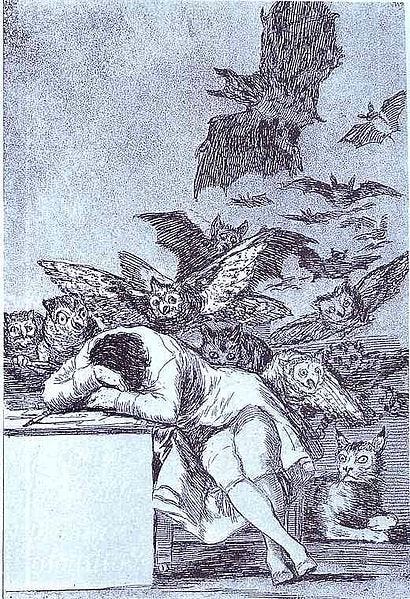“During the Sleep of Reason monsters emerge” - Goya
This podcast and newsletter was inspired by the Goya etching The Sleep of Reason. Goya pointed out that during the sleep of reason monsters appeared. Was he somehow dreaming about our era when he did this?
In this podcast I’ll be commenting, as a composer of contemporary classical music, on music today and how we got here. Up until the mid 20th Century classical music was widely listened to and venerated. New composers such as Aaron Copeland and Charles Ives were played by major orchestras. There were opera shows on prime time television and radio! But suddenly…pffft. It all fizzled out. I’ll be investigating this decline and explaining it. I’ll be relating this decline to problems of life today, in which millions of people are embracing bizarre conspiracy theories and supporting those who would strangle culture for profit and human rights and impose an authoritarian regime to enforce it.
The first episode goes over what happened to classical music in the late 20th century to the present by tracing my evolution as a composer and the incredible road blocks along the way as the critics definition of modern classical kept changing . Subsequent podcasts will deal with the cinema where classical music went to die and Bach’s B-minor mass, the great music work you never listened to.
Other topics to come: How the CIA helped change the course of classical music. How Richard Strauss pointed a way for modern opera with “Ariadane auf Naxos” in 1912.









Share this post